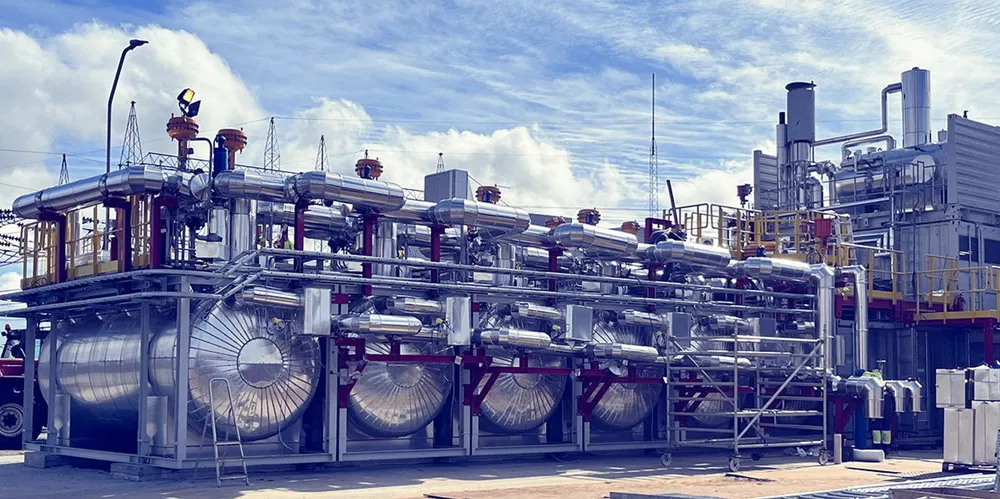Danish power plant set to put molten salts energy storage to the test
The new thermal battery storage concept will help the plant phase out coal as it seeks to reduce its carbon emissions

A Danish power plant is set to serve as the testing ground for a molten salts-based storage technology that can trap excess energy from the electric grid and use it to heat homes.
Norwegian energy storage provider Kyoto Group announced today that its “Heatcube” concept had passed an initial operation test at the Nordjylland Power Station, a coal-fired combined heat and power plant near the Danish city of Aalborg.
The parties have checked that the circulation of salt, air system and heat-tracing are all running smoothly. They will now fine-tune performance over the next two months as staff at the plant are trained on the system, Kyoto stated.
The Heatcube at Nordjylland has an 18MWh storage capacity and a discharge load of 4MW. It is made up of a series of 6-metre-long containers on site.
Heatcube has been installed at the 1967-built power plant as part of a wider efforts to find ways of introducing new low carbon energy sources and phasing out coal.
“This achievement not only displays the effectiveness of our technology but also paves the way for a future where industrial process heat is sourced from clean renewable electricity, enabling the industry to finally decarbonize,” said Kyoto Group CEO Camilla Nilsson.
“The era of change is here, and we are proud to lead the charge towards a greener more prosperous future.”
Heat accounts for two-thirds of industrial energy consumption, according to Kyoto Group, with nearly all of this traditionally based on fossil fuels.
The company says its Heatcube concept provides a sustainable and cost-effective alternative by capturing and storing abundant surplus energy from variable sources such as solar and wind.
Excess energy from the electric grid is used to heat up molten salt in the Heatcube, which can release it later in the form of steam to power homes. Kyoto Group says its the unit lasts up to 30 years and stores energy at up to 90% efficiency.
Founded in 2016, Kyoto Group is headquartered in Oslo, with subsidiaries in Spain and Denmark.
In June, Kyoto Group won the backing of Spanish utility Iberdrola for Heatcube. The renewables giant commited an initial €3m (3.3m) through its PERSEO start-up programme, acquiring a 12.8% stake.